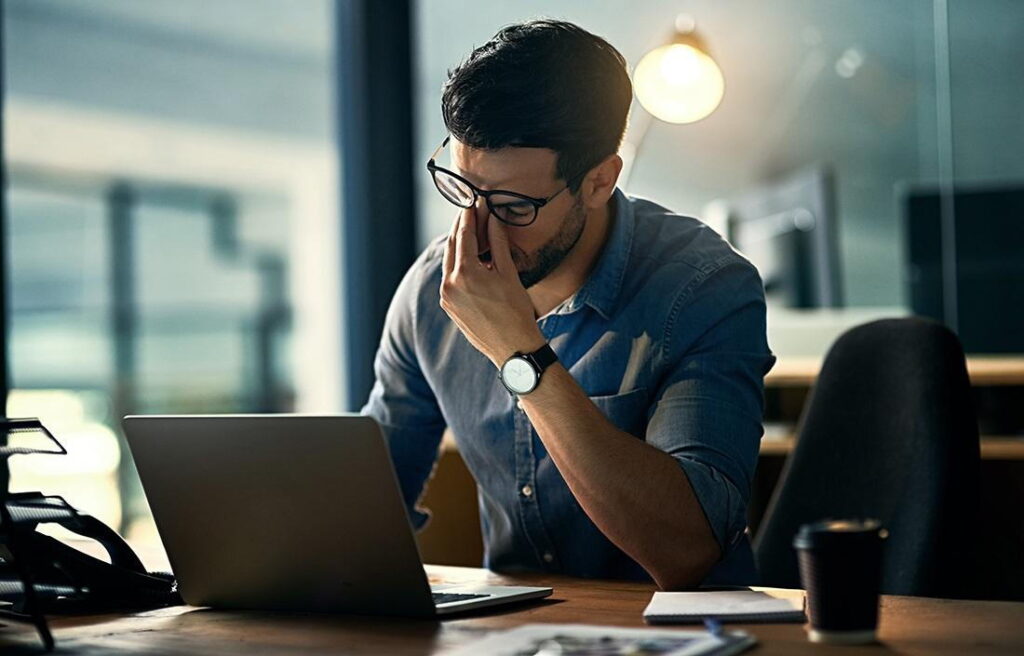Feeling groggy when you wake up every morning, even after a full night’s sleep? Worried about keeping up with your workload because you’re unable to focus on your daily responsibilities?
Simply put, are you tired of being tired?
Daytime sleepiness, fatigue, and poor job performance are just some of the consequences of missing out on sleep.
Sleep is vital to life. It’s one of the most valuable ways for your body to rest and repair itself. A body can last longer without food than without sleep, that’s how important sleep is!
Sleep loss can have such sever consequences on the human body and mind that many consider inflicting sleep deprivation on another person as a form of torture. If you’re trying to go to work and fire on all cylinders after a night (or months, and even years) of sleeplessness, you’re not going to deliver your best performance.
If quality sleep is challenging for you, it’s time to get to the root cause of the problem so it can be corrected.
What Can Cause Lack of Sleep?
Lack of sleep (or what we’ll call sleep deprivation) can be triggered by many factors, but sleep disorders are its most common underlying cause.
Narcolepsy, insomnia, restless legs syndrome, and sleep apnea rob millions of Americans of precious and restorative sleep every night.
While most people have heard of sleep apnea, few know how it could be affecting their lives.
Also called obstructive sleep apnea (OSA), sleep apnea is a potentially life-threatening disorder. Shockingly, nearly 90% of those who suffer from OSA aren’t even aware that they have the sleep disorder.
OSA is marked by the continual stopping and starting of breathing while asleep. This unexpected lack of airflow causes:
- Snoring
- Gasping for air while sleeping
- Dry mouth
- Morning headaches
- Irritability
- Poor concentration
- Drowsiness and fatigue
- Depression
OSA sufferers often find themselves falling asleep while driving, while sitting up, while at work, or even during meals. Sleep is so important that it demands our attention even while we’re driving at high speeds or in traffic. It’s no wonder that daytime fatigue from sleep apnea leaves you at greater risk for motor vehicle and workplace accidents!
Sleep Apnea and Excessive Daytime Sleepiness
Daytime sleepiness can be a sign of sleep apnea. Since OSA occurs while sufferers are asleep, it often takes a long time for those affected by the disorder to know that they are waking up countless times throughout the night.
OSA sufferers can have up to 400 episodes per night of sleep interruptions. When breathing is constantly interrupted during sleep, the deeper and restorative qualities of sleep are unattainable.
If you find yourself suffering from any of the symptoms mentioned above, or if you’re struggling with your career and home life due to fatigue or somnolence, there are OSA treatment methods available that can substantially improve your quality of life. Here are the first steps towards regaining your health through better sleep.
Testing for Sleep Apnea
Sleep apnea testing measures how your body behaves during slumber. Testing involves using specialized devices to measure your breathing and other bodily functions during sleep.
These tests can be done at a sleep lab where technicians connect the sleep monitoring devices and observe the patient for hours, sometimes overnight and in some cases for multiple nights.
Alternative at-home sleep apnea testing is less time-consuming and more convenient for many patients. The home tests track heart rate, blood oxygen level, airflow, and breathing patterns.
Sleep Apnea Treatment Options
If you’ve been diagnosed with OSA, you’re one step closer to a good night’s rest. While finding out that you have sleep apnea can be alarming, many are relieved to finally know what is causing their poor performance, irritability, and exhaustion.
Once you’ve been tested and cleared for treatment, there are a couple of things that your doctor will likely consider.
Lifestyle Changes for Sleep Apnea
Your doctor may recommend the following treatments to help combat some of the effects of sleep apnea:
- Lose weight if you’re overweight or obese
- Exercise regularly
- Drink alcohol moderately
- Quit smoking
- Use a nasal decongestant or allergy medications
- Don’t sleep on your back
Breathing Assistance Devices
If the lifestyle changes haven’t worked or are only providing minimal relief from OSA symptoms, you’ll likely need the assistance of a continuous positive airway pressure machine (CPAP).
A CPAP device treats sleep apnea because it delivers the wearer with continuous airflow that is at a slightly higher pressure than the air outside of the mask. This elevated pressure allows for the upper airways to remain open, preventing users from snoring and gasping for air while asleep.
How Do I Treat Excessive Daytime Sleepiness?
The first step is getting a proper diagnosis for sleep apnea.
The easiest way to get a diagnosis for OSA is through an at-home test. You can easily receive a diagnosis from the comfort of your home through CPAP testing with Home Sleep Center. Learning how you can overcome your sleep apnea through the help of a CPAP device is easy with Home Sleep Center.
Home Sleep Center is ready help you find the answers to your sleep challenges. The process is fast and can help you get back on the road to success with your career, family, and life in general. Contact us today to discover how quickly you can begin sleeping peacefully.

